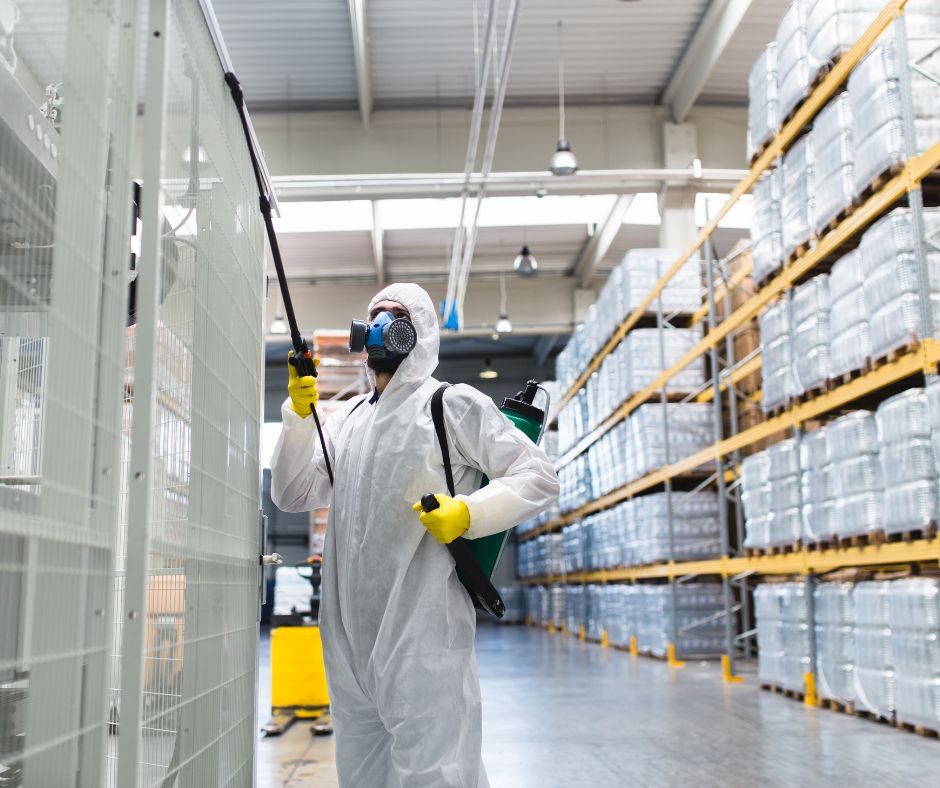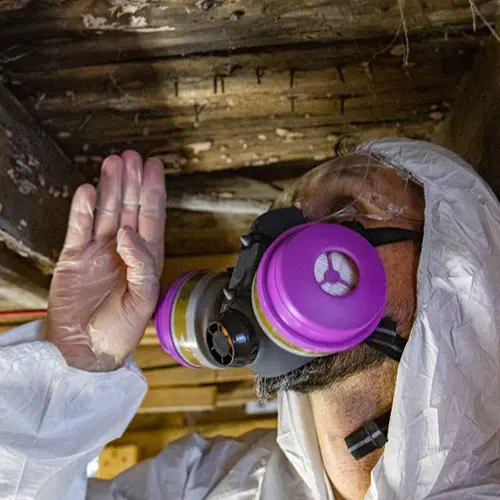Trusted Cockroach Exterminator Port Charlotte to Prevent Infestations in Your Home
Discover the Significance of Insect Control in Preserving a Healthy And Balanced Atmosphere and Therapy Strategies

The Duty of Pests in Ecological Communities
Parasites, typically watched exclusively as nuisances, play a diverse role in ecosystems that is important for keeping eco-friendly balance. They add considerably to various ecological processes, including pollination, vitamins and mineral biking, and pest control. For circumstances, numerous insect varieties, such as bees and butterflies, are necessary pollinators for a variety of plants, which subsequently sustains biodiversity and food manufacturing.
Furthermore, pests function as victim for numerous predators, producing a crucial link in food webs. This interdependence guarantees the survival of different species and helps regulate populaces within ecosystems (Termite treatment Port Charlotte). Decomposer bugs, such as certain beetles and fungi, are critical in damaging down organic matter, thus enhancing dirt and facilitating nutrition recycling.
Conversely, while insects can be advantageous, their overpopulation or intrusion into non-native settings might interfere with these ecological functions. This complexity underscores the significance of recognizing insect characteristics, as efficient bug management approaches have to consider both their environmental duties and prospective effect on human activities. Stabilizing pest existence while lessening damage is important for preserving the integrity of ecosystems and making certain farming productivity.
Health And Wellness Dangers Related To Insects
The existence of pests in different atmospheres prolongs past their environmental functions, as they likewise posture considerable health and wellness dangers to animals and humans. Numerous pests, consisting of insects, rodents, and parasites, are carriers of conditions that can have significant health ramifications. As an example, rodents are known to transfer hantavirus and leptospirosis, both of which can cause extreme breathing and kidney issues, respectively.
Bugs such as ticks and mosquitoes are notorious for spreading vector-borne illness like jungle fever, dengue high temperature, and Lyme condition. These ailments can result in high morbidity and death prices, particularly in susceptible populaces. Furthermore, parasites like insects and cockroaches can intensify allergic reactions and asthma, adding to respiratory system problems in individuals, particularly those with pre-existing problems.
In addition, the presence of parasites can cause psychological stress and discomfort, affecting general wellness. Contamination of food and surfaces by bug droppings and continues to be can bring about foodborne diseases, highlighting the significance of preserving sanitary conditions. Comprehending the wellness threats connected with pests is critical in identifying the need of reliable parasite management techniques to safeguard animal and human health and wellness.

Benefits of Efficient Insect Control
Efficient bug control is necessary for keeping a healthy and risk-free environment, as it consistently mitigates the various threats linked with insect invasions. One of the primary advantages of efficient parasite administration is the reduction of wellness hazards.
In addition, efficient bug control safeguards residential property and structures from damages. Lots of bugs, like termites and carpenter ants, can cause considerable structural damages that might call for pricey repair services. By proactively handling these infestations, house owners and organizations can protect their financial investments.
One more substantial benefit is the improvement of overall lifestyle. A pest-free environment adds to psychological well-being and reduces stress associated with invasions. Furthermore, efficient parasite control promotes a more secure environment for kids and animals, making sure that homes remain shelters totally free from disease-causing organisms and unsafe chemicals.
Common Parasite Control Strategies

In the world of parasite monitoring, various strategies are utilized to deal with invasions successfully. These methods can be generally classified into three primary strategies: cultural, mechanical, and chemical controls.
Social control includes changing practices to decrease parasite reproduction, facility, and survival. This may include plant turning, proper sanitation, and environment adjustment, which collectively develop an atmosphere less for pest expansion.
Mechanical control employs physical methods to eliminate pests (Termite treatment Port Charlotte). Techniques such as vacuums, obstacles, and traps are generally used to straight eliminate bugs from a tick control location. This strategy is specifically effective for managing rats and insects without using harmful chemicals
Chemical control entails the application of chemicals to handle bugs. These compounds can be classified right into herbicides, fungicides, and insecticides, each targeting details sorts of insects. It is critical to make use of these chemicals carefully, adhering to safety standards and regulations to reduce prospective injury to non-target varieties and the environment.
Each parasite control technique has its benefits and constraints, and frequently, an integrated technique combining multiple methods generates the most effective outcomes in preserving a pest-free environment.
Sustainable Parasite Management Practices
Lasting parasite management methods encompass a variety of strategies developed to lessen environmental effect while effectively controlling insect populations. These techniques focus on making use of environmentally pleasant approaches over chemical pesticides, thereby lowering the threat of harm to non-target types, including advantageous insects, wild animals, and humans.
Integrated Parasite Monitoring (IPM) is a foundation of lasting techniques, incorporating organic, cultural, mechanical, and chemical tactics to handle insects. For example, organic control includes introducing natural predators or parasites to suppress pest populations. Social techniques, such as plant turning and polyculture, interrupt pest life cycles and enhance community resilience.
Mechanical methods, such as obstacles or traps, can effectively avoid original site pest accessibility without chemical intervention. Additionally, keeping healthy and balanced communities through proper dirt monitoring, plant health and wellness, and biodiversity can normally reduce insect concerns.
Education and understanding are important components, equipping people and communities to recognize insect dangers early and carry out preventative measures. Termite treatment Port Charlotte. By fostering an alternative technique that stabilizes bug control with eco-friendly honesty, lasting parasite monitoring techniques not only safeguard plants and frameworks however likewise contribute to a healthier environment for future generations
Conclusion

Recognizing the wellness dangers associated with pests is crucial in identifying the requirement of effective parasite monitoring techniques to safeguard animal and human health and wellness.
Effective parasite control is necessary for preserving a safe and healthy and balanced atmosphere, as it consistently minimizes the many risks linked with insect problems.Integrated Insect Monitoring (IPM) is a foundation of sustainable methods, combining organic, cultural, mechanical, and chemical techniques to manage bugs. By understanding the duty of pests, identifying associated health and wellness risks, and utilizing varied treatment strategies, a sustainable technique to pest management can be accomplished. Integrated Parasite Management (IPM) highlights an all natural approach that minimizes harm to helpful microorganisms while efficiently managing parasite populations.